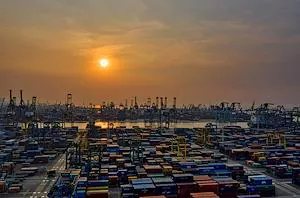Procedure for Requests of Early Resolutions about Value in Imports
The Argentine Tax Authority published General Resolution No. 4643/2019, which establishes the procedure for requests of early resolution about customs value.

Anticipated valuation resolutions are binding administrative acts through which Customs (the “DGA,” after its acronym in Spanish), issued about the correct customs value regarding to certain goods that are intended to enter in the customs territory. The immediate purpose of this type of resolutions is to determine, prior to importation, what method of valuation will be used to establish the customs value of the goods involved and thus know, what will be the appropriate tax treatment. These pronouncements are issued in response to inquiries, submitted by the importer or customs broker, prior to the processing of an import destination.
In this context, this General Resolution aims to ensure certainty in the procedure by which the issuance of such resolutions will be requested.”
To begin with, the interested party must submit the request to the DGA through the Argentine Tax Authority´s website, within the service with tax code, in “Computerized System of Customs Procedures” (the “SITA” after its acronym in Spanish). Additionally, the requested must meet a series of requirements which are detailed in the Resolution and, although they are carried out in person, they must be added to the electronic procedure in digital format.
It is important to note that all information that by its nature is confidential will be considered as strictly confidential by the DGA. Consequently, it will not be disclosed without the express authorization of the applicant who has provided it, unless there is a judicial proceeding.
Within the maximum period of ninety (90) days - counted from the date of registration - the DGA will issue the anticipated valuation resolution. It must be carried out according to procedure and take into account the reports issued by the Documentary Valuation and Verification Directorate, declarations, documents and background presented by the requester, the commercial agreements, legal and administrative regulations, and the background and information available to the customs service and to be collected on the occasion of the request. The applicant may require an administrative or possibly judicial review, initiating a challenge procedure in the terms of Section 1053 of the Customs Code.
When an import declaration is processed under an anticipated valuation resolution, it must be specified in the declaration, indicating its number and date of issue. In this way, the customs service will ensure that the facts, background, legislation or circumstance of that destination are consistent with the facts or circumstances that served as the basis for the anticipated valuation resolution.
The interested party may withdraw from the application submitted at any time, before of the issuing of the anticipated resolution. Notwithstanding, if the import declaration is formalized before the anticipated resolution is issued, the request will be considered to have been withdrawn.
Anticipated resolutions will be valid for the term established by the DGA in the same resolution, as long as the facts, circumstances and legislation that support it are maintained and have not been modified or revoked within that period. In the latter case, the applicant for the resolution will be notified about the action taken.
This insight is a brief comment on legal news in Argentina; it does not purport to be an exhaustive analysis or to provide legal advice.